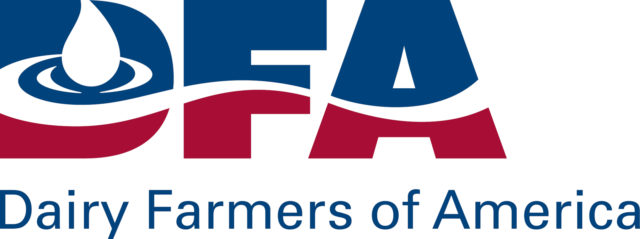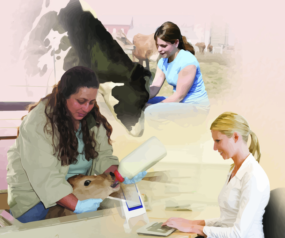Background
Ag gag laws are generally designed to prohibit a person from entering an agricultural operation without permission or by fraudulent means and obtaining video or photographs of the operation. Although nearly half of all states have attempted to pass this type of provision, only eight have done so: Idaho, Iowa, Kansas, Missouri, Montana, North Carolina, North Dakota and Utah.
Although each state’s laws differ, generally two types of provisions are present. First, most laws prohibit entering an agricultural operation and obtaining unauthorized video or photographs of the operation. Second, some laws prohibit an applicant from making false statements on a job application to gain entry to an agricultural operation with the intent to video or photograph.
Within the last few years, litigation began popping up in several of these states. Often, plaintiffs include various animal rights groups such as the Animal Legal Defense Fund or People for the Ethical Treatment of Animals, law professors and journalists. Plaintiffs generally challenge the constitutionality of these laws, claiming they violate the free speech clause of the First Amendment and the Equal Protection Clause.
Laws stricken in Idaho and Utah
In 2015, a federal district judge in Idaho issued the first ruling on the constitutionality of these statutes, finding the Idaho ag gag statute was unconstitutional. The judge held that the law violated both the First and 14th Amendments. The state of Idaho appealed this decision to the U.S. Court of Appeals for the 9th Circuit. In January of 2018, the 9th Circuit issued an order striking the majority of the Idaho law. The court found that provisions prohibiting entry onto a facility by misrepresentation and prohibiting recording of the conduct of an ag production facility’s operations without consent were unconstitutional. Two provisions survived, however.
Those were provisions prohibiting a plaintiff from making false statements to obtain production records to either inflict harm on the owner or bestow a material gain on the person receiving documents and a provision preventing a person from obtaining employment with an ag operation by misrepresentation with the intent to cause harm. In December 2018, a federal district judge issued an order requiring Idaho to pay $260,000 in plaintiffs’ attorneys’ fees in the case.
In 2017, a federal district judge in Utah held that state’s ag gag statute unconstitutional as well. The judge found the statute – which contained prohibitions on gaining access under false pretenses and criminalized intentionally recording an image or sound from an operation by planting a recording device, trespassing to film an operation, and filming an operation after applying for employment with the intent to film – violated the First and 14th Amendments.
In this analysis, the court focused on what Utah said was the purpose of the statute, namely, protecting animals and workers from disease or injury. The court found that the statute did not withstand the strict scrutiny required in order to uphold this type of provision, as there was no evidence that any disease or injury had occurred, and this statute appeared an overinclusive way to remedy that problem. The state of Utah elected not to appeal the verdict. When the dust settled, Utah agreed to pay the plaintiffs $349,000 in attorneys’ fees and costs to settle the case.
Pending challenges
Currently, there are constitutional challenges pending against statutes in Iowa, North Carolina and Kansas. As in the prior cases, the challenges involve the First and 14th Amendments.
The Iowa law, passed in 2012, criminalizes “agricultural production facility fraud,” making it illegal to obtain access to an ag operation by false pretenses or making false statement on employment applications with the intent to take action not allowed by the employer. In October 2017, various plaintiffs filed suit challenging this statute. In February 2018, the court denied Iowa’s motion to dismiss the lawsuit, allowing the lawsuit to proceed into the discovery phase.
The North Carolina law is also facing litigation. This statute, titled the “North Carolina Property Protection Act,” is a bit different than the other states’ statutes. The law provides that a person who intentionally gains access into the nonpublic areas of another’s premises and engages in an act exceeding authority is liable to the owner. Unlike the others, this statute does not apply solely to agriculture and does not apply only to undercover photography or videos; it appears to focus more on the idea of trespass. Examples of acting beyond authority include capturing or removing data, paper, records or documents, recording images or sound, or substantially interfering with ownership or possession of the property. In 2016, various plaintiffs filed suit. The trial court initially dismissed the case, finding lack of standing; meaning that the plaintiffs had not alleged sufficient interest in order to bring the lawsuit. The U.S. Court of Appeals for the 4th Circuit reversed, finding that the plaintiffs did meet the standing requirements and could pursue this lawsuit. The case was remanded back to the trial court where various motions are currently pending.
The most recent challenge was filed in December 2018 against the Kansas law, the oldest in the nation, passed in 1990. The Kansas law prohibits, without consent of the owner, taking photographs or videos at an animal facility with the intent to damage the enterprise and entering an animal facility with the intent to damage the enterprise and commit a prohibited act, like taking a photograph or video.
Conclusion
The litigation and controversy surrounding ag gag statutes appears far from over. With two of eight statutes stricken and legal challenges pending to three more, it will almost certainly be the courts that determine the future of these types of statutes. ![]()

Tiffany Dowell Lashmet
- Assistant Professor and Extension Specialist
- Texas A&M AgriLife Extension Service
- Email Tiffany Dowell Lashmet








